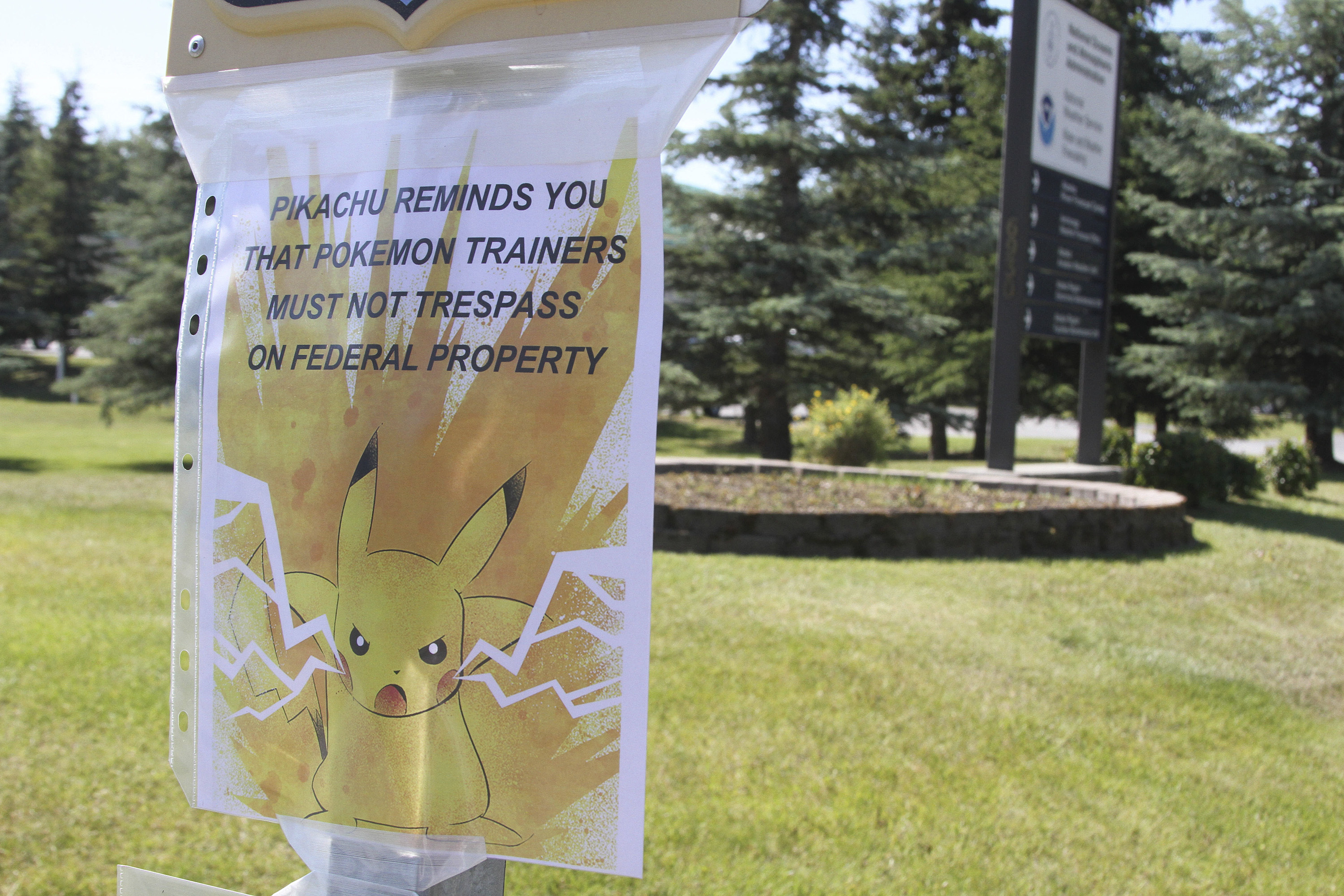The quest for Pokémon, Pikachu, Psyduck and other creatures continues, but many of the more than 15 million players who have downloaded the app are placing themselves and others in danger.
In their zeal to reach the next level, capture the next creature or find Lucky Eggs, they are walking into traffic, trampling on private property and exposing themselves to unsafe conditions.
The game recently claimed its first accident victim when 28-year-old Steven Cary slammed his car into a tree while looking at a special Pokémon on his app. He looked down for a second and woke up later in an ambulance, according to a Facebook post. His car hit a tree and he suffered a broken ankle and cuts to his legs. In another incident, a player parked his car illegally to catch a Pokemon and the car was struck by a second vehicle.
|Who’s liable and who pays?
When incidents like this occur, who is responsible and whose insurance carrier has to pay? In all likelihood, San Francisco-base software developer Niantic Labs didn’t anticipate the level of danger associated with a game where players wander out into traffic, travel into dark, unfamiliar areas late at night or drive while checking their game “for just a minute.”
However, the company could be found liable under a general negligence claim filed by a homeowner, school, church or museum that is damaged by intrepid players seeking a new Pokémon, explains Jeremy Rogers, senior counsel with Seattle-based Smith Freed & Eberhard P.C. He also said that Niantic could potentially be at risk under a concurrent negligence or joint tortfeasor theory.
In many cases, a commercial general liability or business practice insurance policy may cover property damage caused by players, or even the player’s homeowner’s liability coverage may apply.
“If this property is damaged by others, the insurance carrier can institute a subrogation action if the property owners submit a claim, or the property owner could file suit against the tortfeasors directly,” says Rogers.
|Line between digital and physical worlds
“Augmented reality games raise a number of legal issues because this sort of technology really straddles the line between the digital and physical worlds,” says Jim Carter, of counsel with the Washington, D.C., office of Blank Rome LLP. “Cyber security law is catching up and evolving with events that involve the digital world.”
“Liability will depend on the facts of a given case,” adds Carter. “A key factor is whether or not the developer knew or had reason to know of a particular situation and failed to act or act quickly enough.”
As part of the end-user license agreement that everyone downloads but rarely reads, the user consents to arbitration to address any disputes that arise and waives any right to a jury trial or class action lawsuit. However, Carter said he believes there will be bystanders who are not playing the game and have not agreed to the end-user license agreement, who may file suit against the developer. The same is true for children who download the app, since they would not be subject to arbitration.
|Waiver option
Players do have the option to opt out of the waiver, but must do so within 30 days of accepting the terms of service agreement and it must be done in writing either via regular mail to 2 Bryant Street, Suite 220, San Francisco, CA 94105, or an e-mail to [email protected].
Niantic could also be held liable for the data it collect on gamers. It must comply with the Children’s Online Privacy Protection Act which imposes specific requirements on entities that provide services directed at children under the age of 13 and how their information may or may not be used. “Niantic could have liability in terms of data collection or from data breaches,” says Carter. He says any developer would be wise to review their cyber coverage and any limitations or exclusions.
PropertyCasualty360.com reached out to Niantic to ask how it views its liability with the game and will update this story when and if the company responds.

In this Tuesday, July 12, 2016 photo, a sign is shown at the National Weather Service in Anchorage, Alaska, informing Pokemon players that it's illegal to trespass on federal property. The staff started noticing an uptick of people in the parking lot after the location was included as a gym in the popular game. The "Pokemon Go" craze across the U.S. has people wandering into yards, driveways, cemeteries and even an off-limits police parking lot in search of cartoon monsters, prompting warnings that trespassers could get arrested or worse. (Photo: Mark Thiessen/AP Photo)
|Other liabilities
Homeowners could also face liability if someone trespasses in their yard and is injured.
“If players come into your yard, they’ll probably find an old swing set, a trampoline or a pool,” says Eric Narcisco, CEO and founder of Albany, New York-based Effective Coverage, a provider of renters', home and auto insurance. Those are known as attractive nuisances, and if a ‘trainer’ is tempted by them and gets hurt, it could put your coverage at risk.”
“Trespassing on private property is a potential problem,” concurrs Chris Tidball, senior director-casualty solutions consultant for San Diego-based Mitchell, which provides technology and information software, “and there may be situations where property owners take the law into their own hands. Not only could this result in a tragic situation, but it would embroil the property owner in potential litigation.”
Tidball agrees that these situations could create issues for Niantic as well. “I definitely see the potential for litigation against them. After all, they are the deep pockets. It would make sense to pursue them. This would also apply from a subrogation standpoint, whereby insurers may be required to pay claims that are covered under the policy, but may have a right of recovery against the manufacturer.”
|Negligence consideration
From a claims perspective, Tidball says negligence would also be a consideration in determining liability. In the case mentioned earlier where a gamer parked his car illegally before it was hit, an adjuster would examine it just like any other parked car accident. “There is certainly some liability on the illegally parked car, but generally speaking the majority of the fault would be with the striking vehicle. In every claim we examine duties owed and duties breached, and then determine the degree of breach against each party. Some carriers enlist the assistance of software which helps the adjuster to properly apportion liability.”
In cases where a minor causes the damage, his or her parents could be held liable, but Tidball says it will vary by jurisdiction. Consider a child playing the game who walks in front of a car without looking up and gets hit. The pedestrian is clearly at fault, but some jurisdictions will assess liability comparatively if the driver was going too fast or was on a cellphone.
As technology affects yet another aspect of claims, insurance adjusters will continue to apply the terms of a policy to each case, but there may be some interesting legal issues raised in the pursuit of the elusive Pokémon.
Want to continue reading?
Become a Free PropertyCasualty360 Digital Reader
Your access to unlimited PropertyCasualty360 content isn’t changing.
Once you are an ALM digital member, you’ll receive:
- Breaking insurance news and analysis, on-site and via our newsletters and custom alerts
- Weekly Insurance Speak podcast featuring exclusive interviews with industry leaders
- Educational webcasts, white papers, and ebooks from industry thought leaders
- Critical converage of the employee benefits and financial advisory markets on our other ALM sites, BenefitsPRO and ThinkAdvisor
Already have an account? Sign In Now
© 2024 ALM Global, LLC, All Rights Reserved. Request academic re-use from www.copyright.com. All other uses, submit a request to [email protected]. For more information visit Asset & Logo Licensing.








